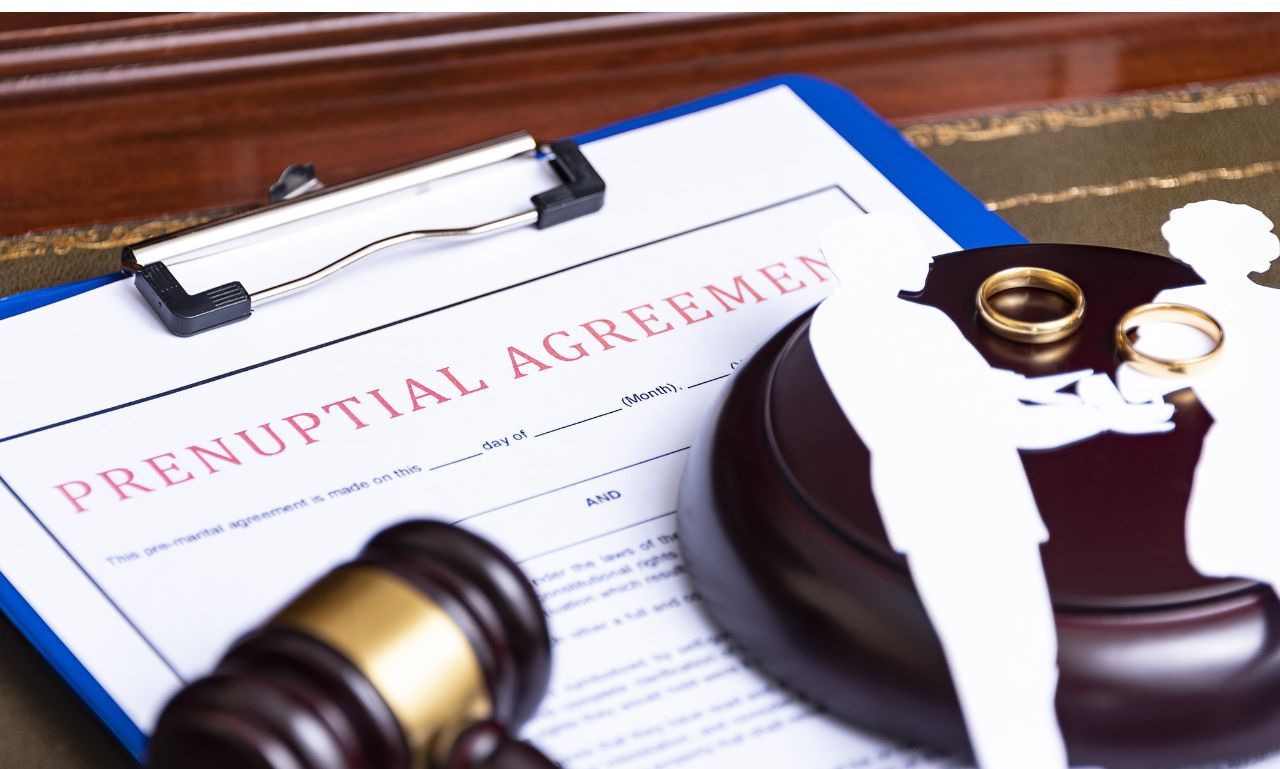Prenuptial agreements, often thought to be a domain of the ultra-wealthy or the overly cautious, are actually an empowering tool for individuals, especially women, seeking to ensure financial security and clarity within their marriage. A prenup isn't about planning for failure but about setting clear expectations and protecting yourself from the unknown future. If you're wondering, what should a woman ask for in a prenup, this comprehensive guide will take you beyond the traditional basics and into new territory—focusing on how you can create a well-rounded, fair, and empowering agreement that reflects your unique circumstances.
The fear of discussing financial topics can often hold people back, but a well-crafted prenuptial agreement can ease your mind and even strengthen your marriage by aligning you and your partner on critical issues. Prenups have evolved to become far more customizable than they once were, and you deserve one tailored to your needs. Here, you'll find everything that should be on your radar before entering a marriage contract—and how you can create a prenuptial agreement that empowers you and sets a solid foundation for your partnership.
Understanding Prenuptial Agreements

A prenuptial agreement, or prenup, is a legally binding document drafted and signed before marriage that determines the division of assets, debts, and other responsibilities in the event of divorce or separation. Many people assume prenups are only for the rich and famous, but they are increasingly becoming a common and practical way to provide security for both partners.
For women, in particular, a prenup can provide a safety net—ensuring financial independence, stability, and equality during and after a marriage. The provisions you include in your prenup can help you feel more confident and secure, knowing that you have already addressed issues that may otherwise create stress or uncertainty.
Importance of Prenups for Women
Women today have diverse roles and financial needs that should be protected. Whether you're entering a marriage with significant personal assets or you're anticipating leaving the workforce to raise children, a prenuptial agreement provides the structure to protect your interests. While both partners should consider a prenup, women in particular can benefit from addressing concerns that have traditionally put them at a disadvantage.
There are several reasons why prenups are important for women:
- Economic Inequality: Historically, women have earned less and often left the workforce temporarily for caregiving responsibilities. A prenup can help mitigate these disparities.
- Career Sacrifices: Many women choose to prioritize their partner's career or take time off to raise children. These decisions can impact future earnings and retirement savings.
- Asset Protection: You may have inherited assets or anticipate receiving an inheritance—a prenup allows you to safeguard what is rightfully yours.
Key Topics to Address in a Prenup
When drafting your prenuptial agreement, it’s crucial to address various aspects that could affect your financial and emotional well-being in the future. Here are the key areas to focus on:
1. Division of Assets
The division of assets is the core of any prenuptial agreement. Clearly define which assets are considered individual property and which are marital property.
- Pre-Marital Assets: Specify which assets belong to you before marriage. These might include property, savings, investments, or businesses. Protecting these assets ensures that they remain yours, regardless of what happens in the marriage.
- Jointly Acquired Assets: Agree on how jointly acquired assets will be divided. Are both partners contributing equally, or does one earn significantly more than the other? This clause can prevent future conflicts about fairness.
2. Real Estate and Property
If you own property, whether it’s a family home, vacation house, or investment real estate, clarify its status. For example:
- Ownership Rights: Will it remain your individual property, or will it become marital property?
- Property Management and Expenses: Consider including a provision on who will manage property-related expenses, such as taxes, maintenance, and mortgage payments.
- Future Purchases: What about future real estate investments? Address how new property purchases will be managed and owned.
3. Bank Accounts and Savings
Do you want to keep your finances separate, or do you prefer a combination of joint and individual accounts? Specify how your bank accounts and savings will be managed.
- Joint or Individual: Decide whether you will maintain separate accounts or have a shared one for household expenses.
- Savings Goals: Address how you will contribute to shared savings goals, such as buying a home, funding your children’s education, or saving for retirement.
4. Retirement Benefits

Women tend to save less for retirement due to career breaks or lower salaries. A prenup can help you outline how retirement benefits will be divided.
- Pre-Marital Retirement Accounts: Specify how retirement benefits accrued before marriage will be handled.
- Contributions During Marriage: Consider detailing how both of you will contribute to retirement savings and how these accounts will be divided in case of divorce.
- Impact of Career Breaks: If you plan to take a career break for caregiving, account for this in your prenup to ensure that you’re compensated for the impact on your retirement savings.
5. Debts and Liabilities
Debt is a significant concern in marriage, and clarifying who will be responsible for existing and future debts is crucial.
- Pre-Existing Debts: Each partner should be responsible for the debts they bring into the marriage. Make sure this is clearly stated in the prenup.
- Marital Debts: Address how debts acquired during the marriage will be handled. For instance, if one partner takes out a business loan, should both be responsible, or just the borrower?
6. Future Inheritances
Consider future inheritances when drafting your prenup. While inheritances are often considered individual property, adding this explicitly in your prenup can prevent any misunderstandings.
- Future Gifts or Inheritances: State that any inheritance received during the marriage should be treated as individual property unless otherwise agreed upon.
Additional Provisions to Consider
Beyond the basics of asset division and debts, there are several additional provisions you may want to include in your prenup to reflect your unique situation and values.
1. Spousal Support Clauses
In the event of a divorce, will one party be entitled to spousal support (alimony)? Addressing this upfront can prevent lengthy legal battles later on.
- Duration and Amount: Specify how much support would be paid and for how long, considering the financial contributions and sacrifices each partner made during the marriage.
- Circumstances for Modification: Include clauses regarding the modification or termination of spousal support, such as in the event of remarriage or significant changes in income.
2. Infidelity Clauses
An infidelity clause can outline the consequences if one partner is unfaithful. Though not enforceable in all jurisdictions, this can be a deterrent or at least an acknowledgment of expected conduct within the marriage.
- Monetary Penalties: Some couples include financial consequences if infidelity occurs. Consider whether this is something you value, as it may help reinforce trust within the marriage.
3. Pet Custody Arrangements
Pets can be like children to many couples. Including pet custody arrangements in your prenup can prevent emotional battles down the road.
- Custody Agreement: Specify who will have custody of pets in case of separation.
- Shared Care: Address whether you plan to share custody and who will handle pet expenses.
The Role of Legal Assistance
Having a lawyer to help draft a prenuptial agreement is essential, especially for women who may not have the same financial experience as their partners. Legal assistance ensures that:
- Your Rights are Protected: An attorney can ensure that your prenup is fair and protects your rights.
- The Agreement is Enforceable: Lawyers can help avoid common pitfalls that make prenups unenforceable, such as lack of disclosure or coercion.
- Customization: An attorney helps tailor the agreement to your unique needs and circumstances, so nothing important is overlooked.
Customizing the Prenup to Individual Needs
Each relationship is unique, and your prenuptial agreement should reflect your individual circumstances. Customization can include:
- Career Plans: If you or your partner expect significant career changes or sacrifices, ensure that the prenup accounts for this.
- Children from Previous Relationships: If you have children from a previous relationship, include provisions to protect their inheritance rights.
- Philosophies on Money: If you and your partner have different views on spending, saving, or investing, consider incorporating these into your prenup.
Common Myths About Prenuptial Agreements

There are several myths surrounding prenuptial agreements, and understanding the truth can empower you to make informed decisions.
- Myth 1: Prenups Are Only for the Wealthy: The truth is, a prenup can be useful for anyone wanting to protect their financial future, regardless of their wealth.
- Myth 2: Prenups Indicate a Lack of Trust: A well-drafted prenup can strengthen trust by ensuring both partners are on the same page.
- Myth 3: Prenups Are Unfair: Prenuptial agreements can be fair if both parties have proper representation and negotiate in good faith.
Conclusion
The decision to create a prenuptial agreement is one of empowerment and respect for your future self. It allows you to address not only your financial needs but also the emotional aspects of entering a partnership with clarity and confidence. As a woman, knowing what should a woman ask for in a prenup gives you the tools to protect your financial independence and create a solid foundation for your marriage. Whether it’s ensuring your retirement is secure, your debts are managed fairly, or your pets are cared for, a well-crafted prenup allows you to shape your future on your terms.



